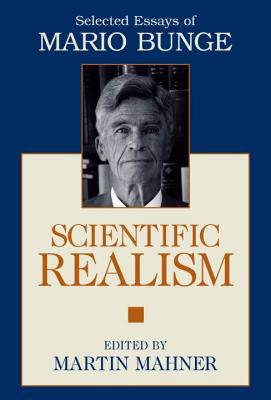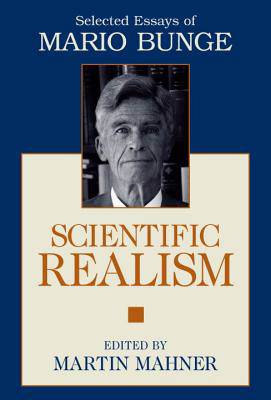
- Afhalen na 1 uur in een winkel met voorraad
- Gratis thuislevering in België vanaf € 30
- Ruim aanbod met 7 miljoen producten
- Afhalen na 1 uur in een winkel met voorraad
- Gratis thuislevering in België vanaf € 30
- Ruim aanbod met 7 miljoen producten
Zoeken
Scientific Realism
Hardcover | Engels
€ 51,95
+ 103 punten
Omschrijving
The prolific and indefatigable Mario Bunge has been writing books and articles on almost every facet of philosophy for nearly fifty years. At a time when much contemporary philosophy is mired in obfuscating jargon and devoid of purpose, Bunge's clarity of thought and expression, as well as his commitment to serious philosophical issues, stand out in sharp relief. Because of the sheer size of his published works, which include the monumental eight-volume Treatise on Basic Philosophy (1974-1989), there is a need for a relatively concise volume that provides a panorama of the philosophical system that Bunge has developed. Martin Mahner has admirably filled this need with this thoughtful selection of thirty articles which illustrate most aspects of Bunge's philosophy.The subject areas include metaphysics; epistemology and methodology; moral, social, and political philosophy; and the philosophy of mathematics, physics, psychology, social science, and technology. Spanning the years 1954 to 1999, the selections, including both well-known and wholly new articles, demonstrate the range of Bunge's thought and his systematic approach anchored in scientific realism.
Specificaties
Betrokkenen
- Uitgeverij:
Inhoud
- Aantal bladzijden:
- 438
- Taal:
- Engels
Eigenschappen
- Productcode (EAN):
- 9781573928922
- Verschijningsdatum:
- 1/08/2001
- Uitvoering:
- Hardcover
- Formaat:
- Genaaid
- Afmetingen:
- 163 mm x 236 mm
- Gewicht:
- 775 g

Alleen bij Standaard Boekhandel
+ 103 punten op je klantenkaart van Standaard Boekhandel
Beoordelingen
We publiceren alleen reviews die voldoen aan de voorwaarden voor reviews. Bekijk onze voorwaarden voor reviews.










